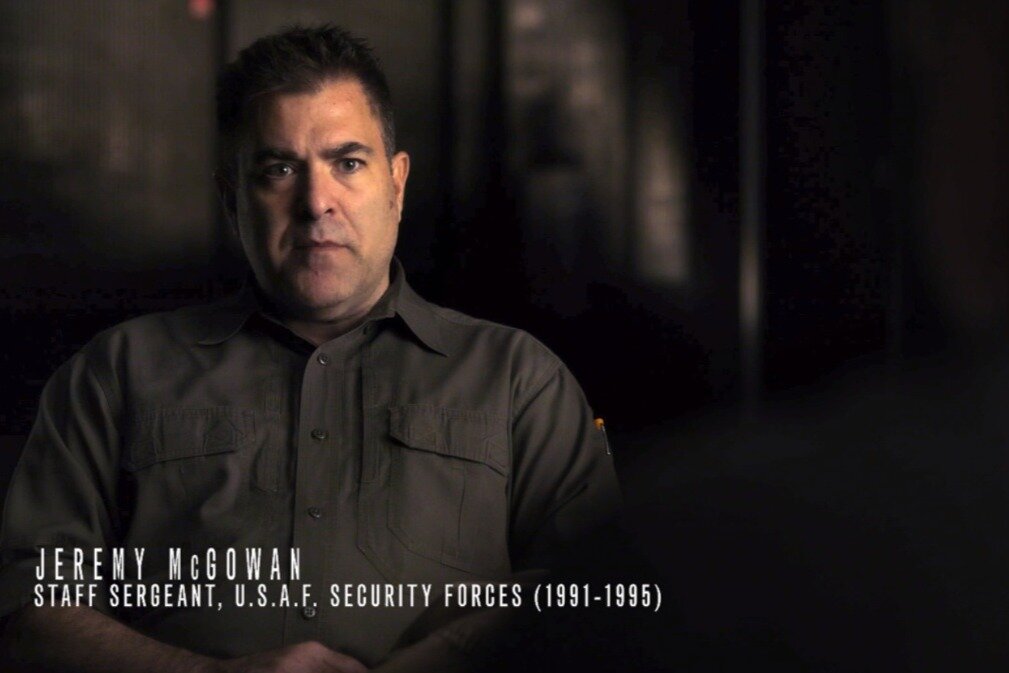Former staff sergeant U.S.A.F security forces Jeremy McGowan never cared to go down the rabbit hole of UFOs until his own military operation sighting in Jordan in 1995 prompted him to change course. Now as a civilian, McGowan looks to join the many ex-military in the ranks of tracking down UAPs, and is doing so by trying to fundraise to build his own Sky Hub tracker.
The Sky Hub project is just one of many developments for someone to partake in DIY science. As organizations like To The Stars Academy of Arts and Science, and UAP Expeditions are working on their own mechanisms to track and collect data. Sky Hub’s tracker offers the Tracker Sensor Array, which is responsible for monitoring the data feeds from the sensors and uses AI to determine when anomalous events occur.
“Sky Hub hopes to create a verified data set related to atmospheric events, including but not limited to the flight characteristics of objects in the sky,” said Chair of the Science Advisory Board Chris Cogswell. “This data will then be used to silo known observables based on the flight and other characteristics we gather on those objects. So for example, a commercial airplane will have a limited range of velocity, acceleration, and height available to it, it will tend to take straight line or very narrowly curved paths, etc. By taking this observable data with other collected data (for example, flight information on aircraft in the area, known flight patterns on commercial craft, signifying markings on the object itself) we can then categorize this craft as a known - commercial airliner. Over time by collecting thousands of these events we can create a view of what an average commercial aircraft looks like to our devices, as well as other common events (insect, bird, military craft, etc). By then applying these heuristics to other events we can begin to decrease our number of collected unknowns, hopefully ending up with a data set of events which we cannot easily categorize. These events will then be used to compare and contrast to themselves, to see if there are similar heuristics available to these unknowns. It is likely that 99% of the events captured will eventually be considered categorized, but that is the point of attempting to get as much data from as many different tracker devices as possible.”
(Screen grab)
McGowan appeared on season 2 of “Unidentified: Inside America's UFO Investigation,” and was inspired by his meeting with Luis Elizondo and the TTSA crew. McGowan wanted to remain independent of any organization in his efforts to track UAPs, and was introduced to the idea of Sky Hub while on a podcast. McGowan believes projects like this could help more veterans start engaging into UAP studies.
“I think that having an open source project that enables anyone to build their own tracker, but maintaining a standard data set and protocols will help and encourage anyone to participate in overall disclosure,” McGowan said. “Military veterans certainly have (what I feel to be) a larger percentage of witnesses and/or experiencers - and I would certainly hope that this will help bring them out of the shadows and help them engage with the phenomenon without stigma. When academia and scientific communities start to analyze the data, this validates and lends credibility to veteran's sightings.”
Sky Hub offers directions on how to assemble your own tracker, but it isn’t cheap. The overall cost of the SkyHub McGowan is trying to build is approximately $1,500 with another $1,500 in support equipment, so McGowan has set up a GoFundMe page. Even though the tracker is costly, it was designed to be user friendly.
“I believe these trackers are going to be of interest to a number of different groups, and can be used for a variety of different applications,“ Cogswell said. “ For UAP researchers or those interested in seeing what flies above their location at night the tracker devices are a relatively inexpensive, easy to build system which can do the monotonous work of scanning the night sky for you automatically. While building these devices we hope users will learn some engineering and programming skills, as well as become better acquainted with the night sky itself and the characteristics of known objects. At the same time, however, the system has been designed to be easy enough that anyone with the desire can build and set one up.”
McGowan believes the community project Sky Hub will help with “disclosure,” and aid scientists.
“I just want answers. I have a gut feeling about the UAP issue - but we don't know what we don't know,” MCGowan said.” This project will (hopefully) help provide me personal answers that I'm seeking while at the same time enabling me to help the overall idea of disclosure at large. We can't wait for Government to spoon feed us information - if we want to affect the course of human events, we have to take action.”
By MIKE DAMANTE
If you are a fan of “Unidentified” , Mike Damante’s latest book “Punk rock and UFOs: Stranger Than Fiction” features exclusive interviews with Tom DeLonge, Peter Levenda, Kevin Day, Sean Cahill, and the producers of “Unidentified.” Order now.


